There should be a roadmap for taxing high-value inherited assets.
At the discussion session on the afternoon of November 5, giving opinions on the draft Law on Personal Income Tax (amended), the delegates in Group 4 (including the National Assembly delegations of Khanh Hoa , Lai Chau and Lao Cai provinces) all expressed agreement on the necessity of amending the law.

Basically agreeing with the contents of the draft Law, National Assembly Deputy Do Ngoc Thinh proposed to study and consider a number of contents.
Specifically, in Clause 1, Article 4 on tax-exempt income, it is stipulated that: Income from transfer, inheritance, and gifts of real estate between husband and wife; biological father, biological mother and biological child; adoptive father, adoptive mother and adopted child; father-in-law, mother-in-law and daughter-in-law; father-in-law, mother-in-law and son-in-law; paternal grandfather, paternal grandmother and grandson; maternal grandfather, maternal grandmother and granddaughter; siblings with each other.
"The drafting agency needs to study this policy more carefully and comprehensively," the delegate commented.
According to the delegate, the nature of personal income tax is a direct tax, playing an important role in regulating income and redistributing wealth to ensure social equity.
“The complete tax exemption for a significant source of income such as real estate inheritance may not fully reflect this principle, going against the practice of many developed countries today.”

Delegate Do Ngoc Thinh cited that many countries consider income tax from real estate inheritance as an important taxable income.
For example, in the US, inheritances worth over $13.61 million are taxed at a rate of up to 40% at the federal level, while some states also impose their own inheritance taxes.
In Asia, South Korea and Japan have the highest inheritance tax rates today, at a maximum of 50% and 55% respectively.
"Therefore, imposing taxes on inherited assets of great value not only ensures fairness in income regulation but is also an indirect solution to limit speculative accumulation in real estate," the delegate said.
According to the delegate, only inheritance income should be completely exempted from tax for parents - children, husband - wife.
The drafting agency needs to study and develop a roadmap for calculating and collecting personal income tax on inherited assets of great value for the remaining relationships: paternal grandparents with grandchildren; maternal grandparents with grandchildren; siblings with each other. When the value of inherited assets exceeds a certain level, the amount of personal income tax payable for the value of assets exceeding the prescribed level can be determined according to the progressive tax schedule.
“We learn from international experience but do not apply it as is. We should have a roadmap to some extent so that they can still enjoy inheritance rights but have to pay a portion of personal income tax to the State, and regulate wealth for other subjects in a more equitable society,” said delegate Do Ngoc Thinh.
Family deductions should be regional.
One of the notable new points of the draft Law is that the progressive tax schedule has been adjusted from 7 levels to 5 levels. The distance between the levels has different slopes, levels 1, 2, 3 are 10% apart, while levels 4 and 5 are only 5%. Previously, the distance between the levels was only 5% and the highest tax rate was still 35%.
According to National Assembly Deputy Nguyen Thanh Trung (Lao Cai), the first 3 levels are the highest taxpayers among individuals paying personal income tax, in which those with income in levels 2 and 3 are subject to higher tax pressure than current regulations, while this is the majority, mainly middle-income earners that we need to encourage in the economy .

Citing the experience of some similar countries in the region that still have 7 levels, delegate Nguyen Thanh Trung proposed keeping the current 7 levels with a 5% gap between levels, and at the same time studying regulations on taxable income distribution at each level appropriately.
The draft law gives the Government the right to regulate family deduction levels, but in essence it still applies an absolute level across the country. “This does not reflect the significant difference in living costs between regions,” noted delegate Do Ngoc Thinh.
As evidence for the above statement, the delegate cited data from 2024, the monthly spending level in urban areas is approximately 1.5 times higher than in rural areas and increased by 15.8% compared to 2022. Thus, with the same income level and the same deduction level, the actual cost burden of taxpayers in urban areas is much greater than in other areas.
“If a general deduction is applied, it may not ensure fairness in the ability to pay taxes for people living in areas with high living costs.” Emphasizing this, delegate Do Ngoc Thinh suggested that the draft Law should add a mechanism to determine the family deduction level on the regional minimum wage.
Source: https://daibieunhandan.vn/mien-thue-thu-nhap-voi-bat-dong-san-thua-ke-la-di-nguoc-thong-le-the-gioi-10394503.html





![[Photo] Opening of the 14th Conference of the 13th Party Central Committee](https://vphoto.vietnam.vn/thumb/1200x675/vietnam/resource/IMAGE/2025/11/05/1762310995216_a5-bnd-5742-5255-jpg.webp)




















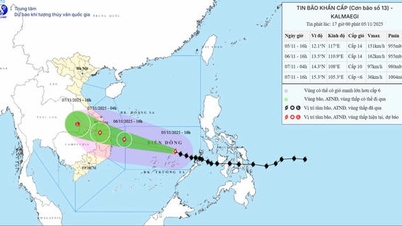







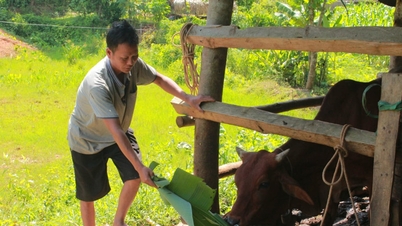
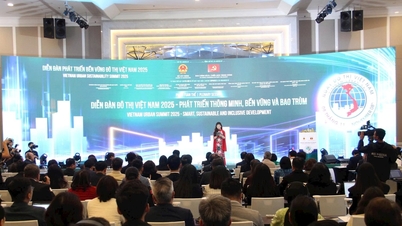
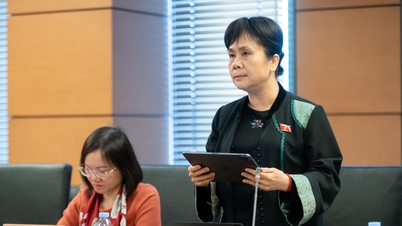

![[Photo] Panorama of the Patriotic Emulation Congress of Nhan Dan Newspaper for the period 2025-2030](https://vphoto.vietnam.vn/thumb/1200x675/vietnam/resource/IMAGE/2025/11/04/1762252775462_ndo_br_dhthiduayeuncbaond-6125-jpg.webp)



































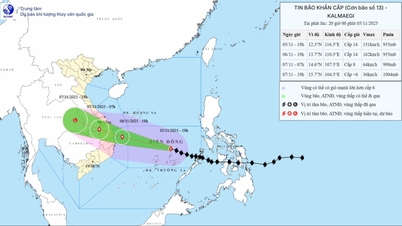




































Comment (0)